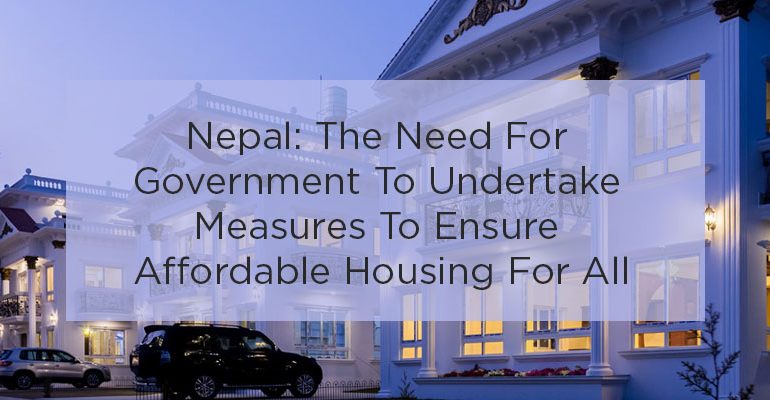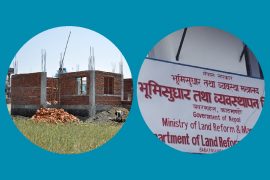Majority of low-income earners and the poor are unable to afford the high priced land and housing facilities in Nepal. However, this issue can be addressed by establishing proper shelter policies which should be implemented effectively.
Nepal has a National Shelter Policy (NSP) which was implemented in 1996. Afterward, the NSP was revised and updated in 2012. The 2012 NSP outlines the government as an enabler and facilitator in housing provision. It is also aimed at promoting the growth of the housing industry by encouraging and attracting private sector investments. This has seen the government implement acts, policies, guidelines, bylaws, and regulations in the past. Such include the 2003 National Building Code, the 2015 Planning Norms & Standards, and the 1993 Ownership of Joint Housing Act. These measures have resulted in increased construction of individual houses and apartments by private developers especially in the Valley of Kathmandu. However, the housing units are priced at high costs which majority is unable to afford.
According to the 2011 National Census, there are about 5.4 million housing units in Nepal with one million of the total units located in urban areas. The rest are in rural areas. The report further indicates that 85.26 percent of the total households live in individual homes while only 12.81 percent live in rented houses. The remaining 2 percent of households rely on institutional housing facilities and other types of accommodation. The 2012 NSP had indicated that additional 3 million residential homes are required between 2006 and 2020 period. Further, 20 percent of housing demand would rise in urban areas while the rest would come from rural areas.
Therefore, there is a need for families and individual house builders to construct new houses to fulfill these demands. The government agencies need to promote affordable homes and land by addressing issues like construction materials, land affordability, finance options and building technology. Additionally, the government needs to address the issue of expensive rental apartments in urban areas. The UN Sustainable Development Goals, Goal 11, pushes for the need to make a human settlement in cities inclusive, resilient, safe, affordable and sustainable. The government should ensure that land is accessible to all regarding affordability. As such, it should regulate the real estate market, ensure the distribution of develops plots is in installments and at affordable rates, and earmark a percentage of the established schemes for the poor and low-income earners.







